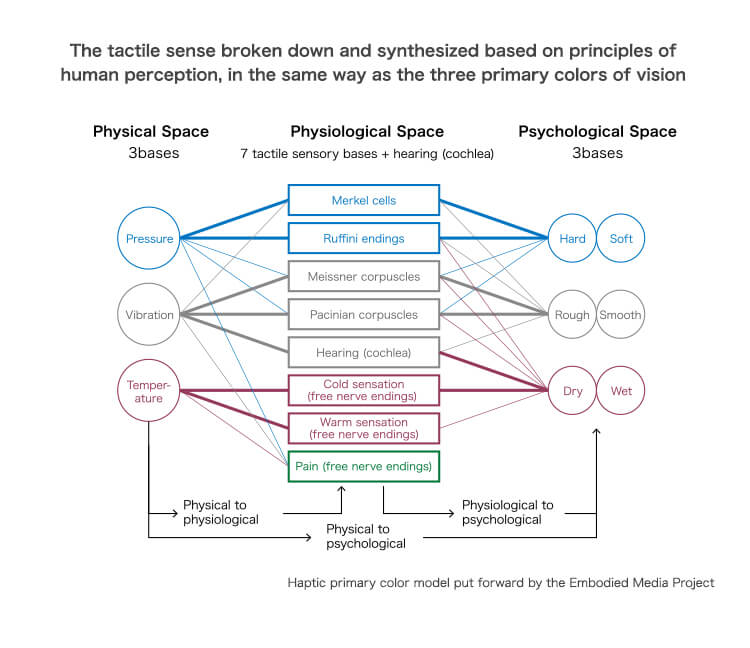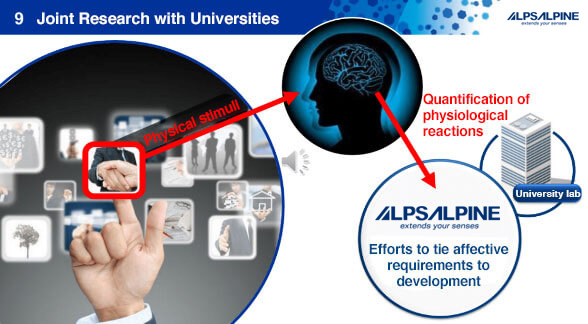Feel Expertise Broadened and Enriched by Collaboration with Academia and the Corporate World
At Alps Alpine, we not only focus on enhancing the tactile quality of our products, but also dedicate efforts to deepening the technological expertise that underpins them. Here we introduce activities we undertake to further enhance our feel creation, including research through industry–academia partnership with scientific or academic bodies and collaboration with companies, both domestic and foreign.




